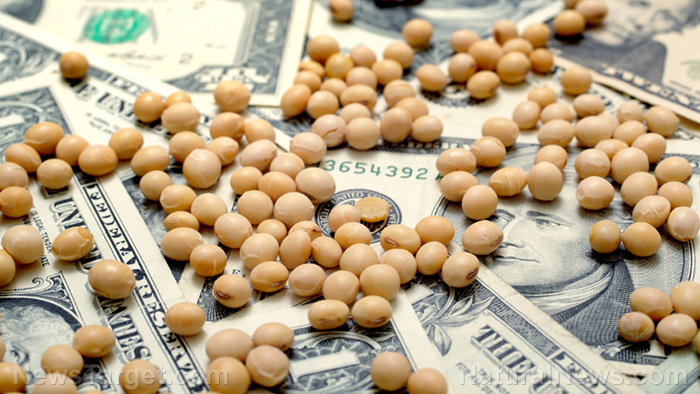GMO “gold rush” underway after USDA refuses to regulate Crispr gene editing of foods
08/20/2018 / By Isabelle Z.

The USDA has inexplicably decided not to regulate the Crispr gene editing technique for food, and a slew of young companies are working around the clock to take advantage of this business-friendly approach and vie for dominance in the gene-edited crop sphere.
Gene editing technology is used to target certain genes within an organism, disrupting the ones that are associated with undesirable characteristics or changing them in a positive way. It might sound a little better than traditional genetic modification, which involves the transference of a gene from one type of organism to another, but the truth remains that we simply don’t know what the long-term effects of this approach and their impact on human health could be.
Nevertheless, its relative newness means the products it yields haven’t yet garnered unflattering nicknames like “Frankenfood” – and more importantly, the USDA’s lack of regulation means it’s a lot faster and cheaper to bring its products to market. (See USDAwatch.com for more coverage.)
The traditional genetically modified crop could cost $150 million to develop and market; that cost can be slashed by up to 90 percent with gene editing. And while genetically modified crops generally take 12 years to move from development to commercialization in the U.S., a gene-edited crop can accomplish the same in just five years.
U.S., EU regulators view Crispr gene editing differently
The USDA has said that none of the 23 inquiries it has fielded about whether such crops need regulation have met its criteria for oversight, with USDA Secretary Sonny Perdue claiming that the process introduces characteristics it considers “indistinguishable” from the type created in traditional plant breeding.
100% organic essential oil sets now available for your home and personal care, including Rosemary, Oregano, Eucalyptus, Tea Tree, Clary Sage and more, all 100% organic and laboratory tested for safety. A multitude of uses, from stress reduction to topical first aid. See the complete listing here, and help support this news site.
In contrast, the Court of Justice of the European Union ruled last month that gene editing is subject to the same regulations as genetically modified crops, making it illegal for commercial crops to be grown and limiting its use to research.
Tiny company beating out the big names
Therefore, it has quickly become a “gold rush” scenario in the U.S. One small eight-year-old company co-founded by a genetics professor, Calyxt, Inc., is positioned to beat the top agriculture farms in the world with its gene-edited soybean plant that will produce oil they claim is healthier.
They’ve already had 78 farmers plant their soybeans across 17,000 acres of land, and their gene-edited crop will beat out Fortune 500 companies to become the first to sell commercially. That’s not bad for a company that has never even turned a profit before.
Some other relatively unknown companies are right next to them in the race to dominate this field, including Benson Hill Biosystems and Cibus. Some of the crops this technology is being used to create include apples that do not turn brown, potatoes that can handle cold storage, soybeans that can resist a drought, wheat with a low gluten content, and tomatoes with a richer flavor.
Berenberg analyst Nick Anderson said he believes the advances could double the global biotechnology seed market, which currently stands at $15 billion, within the next decade.
The bigger agricultural firms, however, are proceeding with caution. Although they recognize there is money to be made, the jury is still out on whether the public will be accepting of the new method. Cargill Inc is collaborating with Precision BioSciences to create a healthier canola oil, but it is moving slowly.
Vice President of Food Safety Randal Giroux said: “We really do want to see gene-editing evolve in the marketplace. We’re watching to see how consumers adopt these products and react to these products.” See Frankenfood.news for more news stories.
Sources for this article include:
Tagged Under: agriculture, Big AG, biotech, Calyxt Inc, Cargill, CRISPR, food science, food supply, gene editing, gene-edited crops, genetically modified crops, GMO, GMOs, harvest, USDA

















